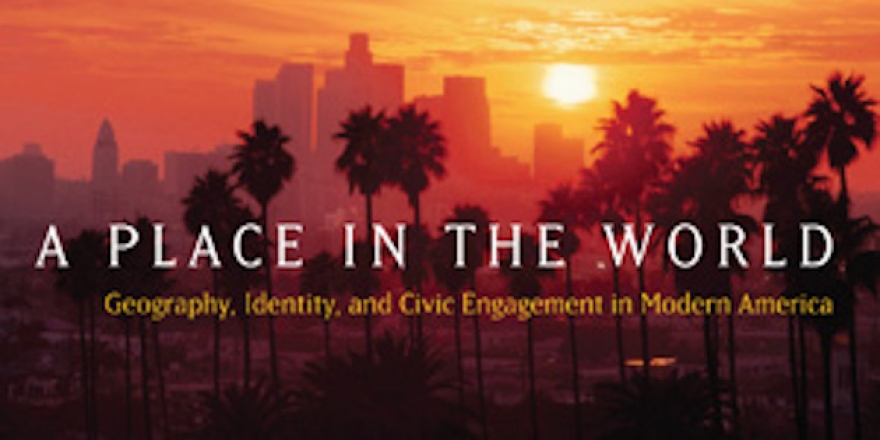Davenport Institute Explores Geography and Civic Engagement
Pepperdine Magazine is the feature magazine for Pepperdine University and its growing community of alumni, students, faculty, staff, and friends.
The Davenport Institute for Public Engagement and Civic Leadership[BROKEN LINK] at the School of Public Policy will host “A Place in the World: Geography, Identity, and Civic Engagement in Modern America,” a two-day conference that will examine one’s sense of “place” as a necessary condition for the construction of character, citizenship, and membership in society. The events will take place Friday, Mar. 11, and Saturday, Mar. 12, in the Drescher Graduate Campus Auditorium on the Malibu Campus.
Daily schedules include conversation sessions led by a wide range of participating speakers from theorists and practitioners to city managers and geographers, planners and historians, and activists and policy makers. The sessions will explore various themes, including “Mobility and Membership,” “Cosmopolitanism and Place,” “Place and Community in Tomorrow’s Cities and Neighborhoods,” “Building a Place: The Shape and Scale of the Good Life,” “The Public’s Role in Defining Place,” and “Public Engagement: A Chance to Build Community in the ‘New Normal.’”
The conference will feature two days of sustained reflection on the meaning and making of “place” and about how particular places can best encourage personal and civic flourishing. “The sense of belonging to a ‘place’ is very important for people to be able to engage well with those around them,” explains program codirector and School of Public Policy professor Ted McAllister. “It allows them to find out who they are and understand the sources of their identity and therefore what purposes they have in life.”
Friday’s schedule will conclude with a dinner and keynote address by Yi-Fu Tuan, the J. K. Wright and Vilas professor emeritus of geography at the University of Wisconsin-Madison, wherein he will discuss “Place/Space, Ethnicity/Cosmos: How to be More Fully Human.” On Saturday, award-winning poet and former chair of the National Endowment for the Arts Dana Gioia will present a lecture titled, “Is Los Angeles a Place?”
In addition to examining individual concepts of “place” and society, the sessions will explore the nature of local communities in the context of the atomizing forces of globalization and the role of urban planning in fostering these relationships. “This investigation requires a more applied set of questions,” stresses McAllister, “such as ‘How do we shape our cities?’ and ‘What does architecture do to create livable spaces?’”
Other discussions will emphasize the importance of rootedness in good citizenship and being capable of engaging in the political and policy process. “Without good places, we would not have good citizens,” asserts McAllister. “If we don’t tend carefully to how we make and preserve ‘place’ or don’t think about all those questions that help create a sense of belonging and connectedness, then we can’t really expect democracy to work.”
Ultimately, the aim of the conference is to allow participants to think critically about current local and practical questions and problems by encouraging the integration of theory and practice in the same conversation. “In some ways, the conference is how the School of Public Policy approaches policy in the context of much broader concerns about history and the constituent elements for human flourishing,” remarks McAllister. “We live in an age of great insecurity,” he continues. “With the vast and incomprehensible economic forces of global capitalism and with an ever greater distance between individuals and the forces that control their lives, many people yearn for a stronger attachment to place and they want their places to be scaled so as to make their world explicable. When we try to turn space into place and when we engage actively in placemaking, we express our need for home—a safe and secure place to be and become.”
